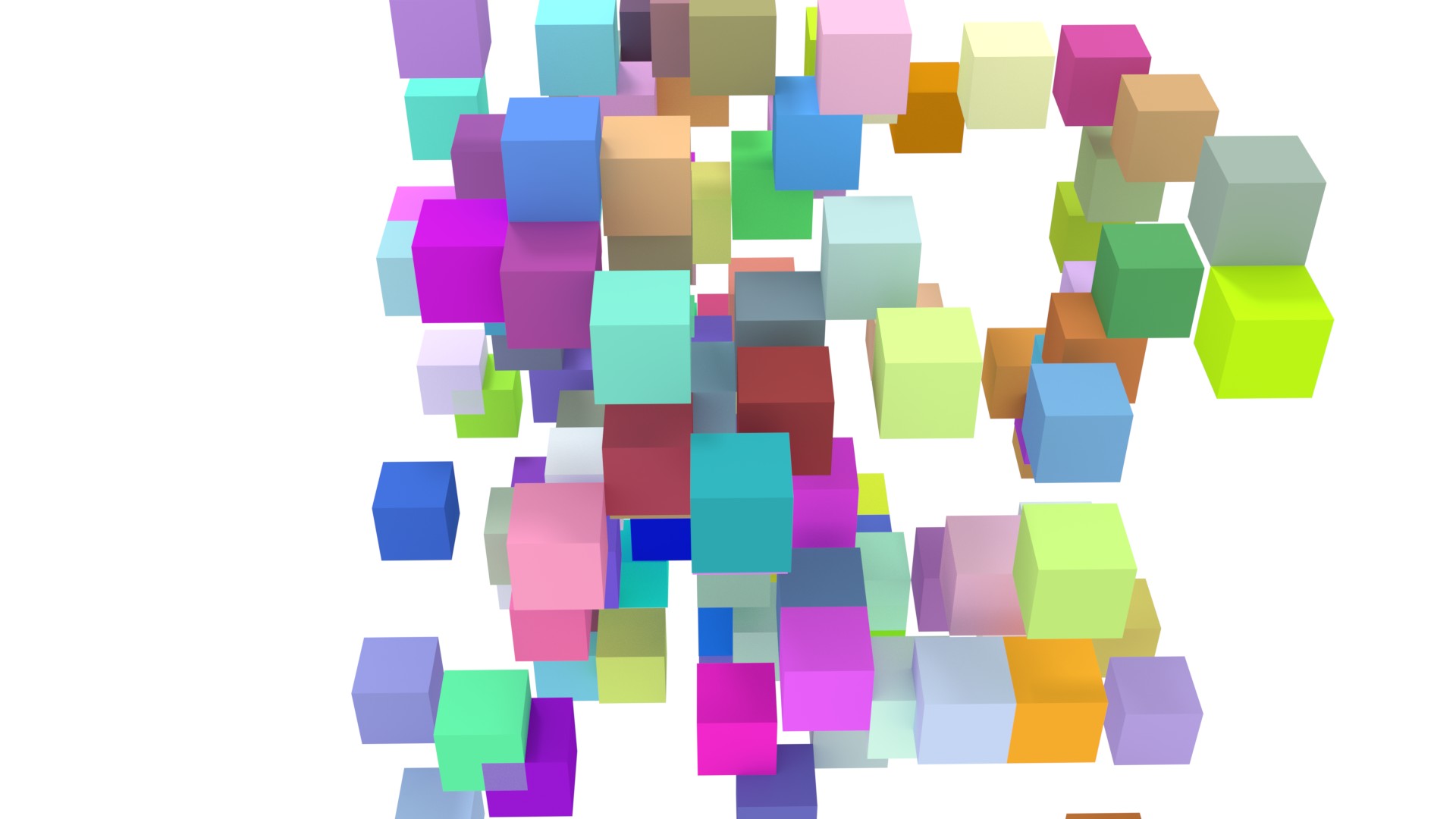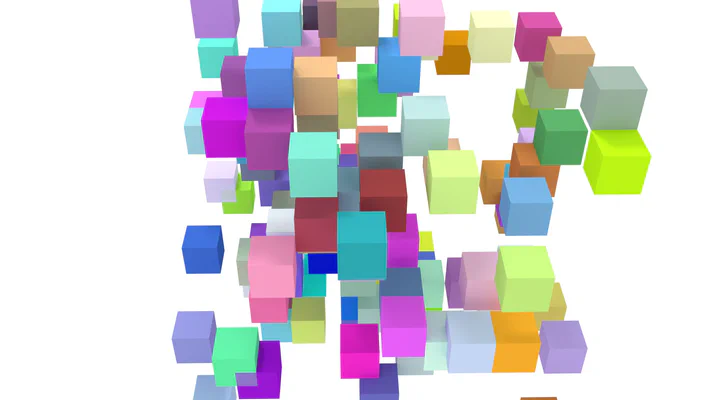
Blender is awesome. The things you can create with it are endless. If would had discovered Blender during or before college I might have switched careers entirely.
I’ve created a Video Tutorial which shows how Python can be used to generate random animations. This is usefull when generating background video’s or wallpapers.
UPDATE: Use the 2.79 version for Blender 2.79 or earlier, use the 2.8 version for the new version of blender!
The script is pretty straightforward.
Blender 2.80 and future releases:
#Random Cube Creation and Animation# (c) Andrei Clinciu 2018 https://andreiclinciu.net# Licensed under GPL 3.0 - Attribution Requiredimport bpyfrom random import randint,randombpy.ops.collection.create(name="CubeXGroup") #group = bpy.data.collection['CubeXGroup']def main(): start_pos=(0,0,0) for i in range(77): add_box(i); def add_box(i): #generate our object bpy.ops.mesh.primitive_cube_add(location = [ randint(-10,10) for axis in 'xyz']) #Select the active object (last added is always the active one obj = bpy.context.active_object object_random_location_animation(obj,-10,10) object_random_color(obj,i) obj.select_set(state = True) bpy.data.collections["CubeXGroup"].objects.link(obj)#End AddBoxdef object_random_location_animation(obj,min,max): positions = [] for i in range(0,9): positions.append([ randint(min,max) for axis in 'xyz']) frame_num = 0 for position in positions: bpy.context.scene.frame_set(frame_num) obj.location = position obj.keyframe_insert(data_path="location",index = -1) frame_num +=30#End object_random_location_animationdef object_random_color(obj,i): material = bpy.data.materials.new(name = "RandomMaterial" + str(i)) obj.data.materials.append(material) bpy.context.object.active_material.diffuse_color = (random(),random(), random(),1) # bpy.context.object.active_material.name = "Object Material" #inputs[0].default_value = (random(),random(), random(), 1) #NOTE: Colours may be very interesting or not so great #You can select colours from a list of predefined colours#End object_random_colormain();
Blender 2.79 and earlier
#Random Cube Creation and Animation# (c) Andrei Clinciu 2018 https://andreiclinciu.net# Licensed under GPL 3.0 - Attribution Requiredimport bpyfrom random import randint,randombpy.ops.group.create(name="CubeXGroup") group = bpy.data.groups['CubeXGroup']def main(): start_pos=(0,0,0) for i in range(77): add_box(i); def add_box(i): #generate our object bpy.ops.mesh.primitive_cube_add(location = [ randint(-10,10) for axis in 'xyz']) #Select the active object (last added is always the active one obj = bpy.context.scene.objects.active object_random_location_animation(obj,-10,10) object_random_color(obj,i) obj.select = True bpy.ops.object.group_link(group="CubeXGroup")#End AddBoxdef object_random_location_animation(obj,min,max): positions = [] for i in range(0,9): positions.append([ randint(min,max) for axis in 'xyz']) frame_num = 0 for position in positions: bpy.context.scene.frame_set(frame_num) obj.location = position obj.keyframe_insert(data_path="location",index = -1) frame_num +=30#End object_random_location_animationdef object_random_color(obj,i): material = bpy.data.materials.new(name = "RandomMaterial" + str(i)) obj.data.materials.append(material) bpy.context.object.active_material.diffuse_color = (random(),random(), random()) # bpy.context.object.active_material.name = "Object Material" #inputs[0].default_value = (random(),random(), random(), 1) #NOTE: Colours may be very interesting or not so great #You can select colours from a list of predefined colours#End object_random_colormain();
First we generate a random number of cubes by calling the add_box function on each number. A random location is chosen for the x,y,z axis [ randint(-10,10) for axis in 'xyz']).
Then a each cube/object gets animated in object_random_location_animation. What happens is we space each action a X number of keyframes appart(30 in our example) then it gets moved to a different location.
After this is done then each cube/object gets a random material and color.
This is just the starting point of what you can do. You can create different types of objects and give them random speeds and materials. Maybe even adding physics to them and bounce them together.
